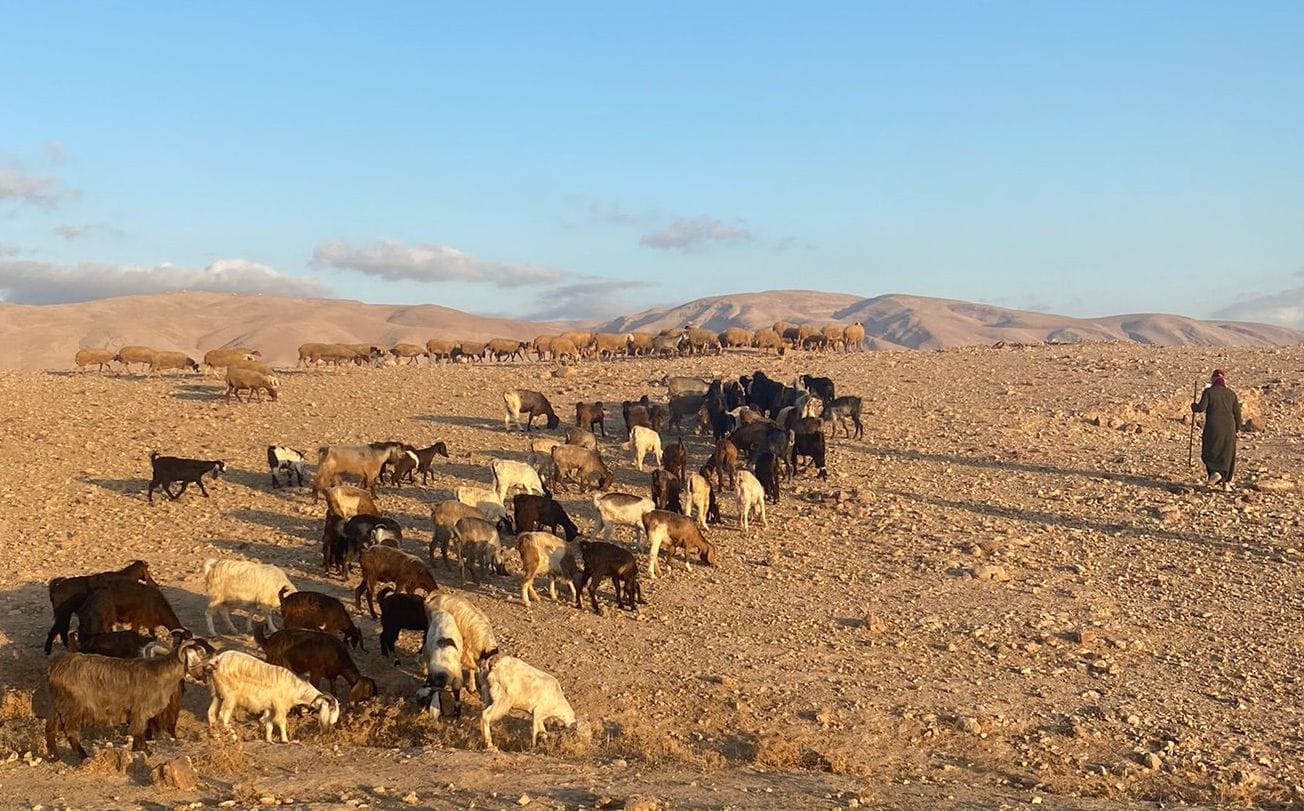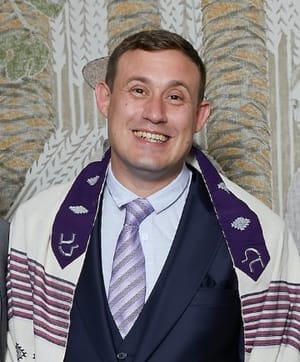In Israel-Palestine and the UK, we are contesting what it means to be Jewish
Across borders, diaspora Jews and Palestinians have been joined to each other. If they cannot survive colonisation, I do not know if we will either.

“Nothing that happens here is transcendental. It is just about who gets to live in and farm these hills.”
In the Jordan Valley, which runs along the eastern portion of the occupied West Bank, there is a vague tedium for those of us who engage in the act of “protective presence” – accompanying Palestinian shepherds as they go about their daily routines, in order to deter and document state and settler violence.
We are not farmers, and I suspect I would be fairly useless at the tough manual labour that these men and women do from dawn until dusk. So once we have entertained the children, read our books, and drank enough caffeine to feel slightly buzzed, all that is left to do is talk.
My Hebrew is weak, and my Arabic is limited to basic conversation words, so I can only really talk properly with the one English speaker: an Israeli activist who comes here every week to support these Bedouin families. And he does not understand why international Jews care about Israel-Palestine at all. “If I could forget this place, I would,” he tells me.
True, what’s happening in this land is a humanitarian catastrophe and a deep invasion of people’s basic right to life, but it is deeper than that. We are contesting what it means to be Jewish.
Is it these settlers, deploying the power of a large military to attack and displace Palestinians? Is it the police officers who randomly arrest shepherds on their own land as an intimidation tactic? Or is it the ethical practices and God-fearing mentality we have developed over three thousand years?
“You [diaspora Jews] think about us so much, but we don’t think about you at all,” the Israeli activist continues. “If anything, we have contempt for you, with all your bagels and tefillin.” (I have, indeed, brought my tefillin, and the gefilte fish I am eating look to him like weird hangovers from a shtetl past.) The whole business of our exilic life looks bizarre.
“You have to understand,” he says, “Israel is a modern European country, and like any modern European country, it hates Jews.”
I know what he means. Not, of course, the modern Israeli Jews, like the soldiers in my hostel who share misogynistic stories of their sexploits. No, Jews like me, with our effeminate affinity for books and ideas.
Before he started working for Rabbis for Human Rights, my interlocutor had only heard of Reform Judaism as a punchline. In fact, in the context of Israeli society, where rabbis are normally seen giving their blessing to bombing campaigns, even the concept of rabbis who stood up for human rights sounded like a joke.
In my own context in Britain, Judaism is so obviously a contested site. The debates about what antisemitism is are just as much debates about who is Jewish, who has the power to make pronouncements about it, and what it means to be Jewish in the context of the divisions at the heart of an imperial core.
In a way, holding onto diasporic Judaism is a fundamentally conservative project. We are seeking to protect old institutions, like synagogues and Talmud study, from the unbearable weight of a modernity that sees no role for them.
Yet, even there, we are contesting what being Jewish means. Will it be complicit, for example, in the subjugation of women and silencing of queers, or will it be instrumental in their liberation? Will we be Britain’s best model minority who acquiesce to every part of nationalist capitalism, or will we be key to resisting it?
On Shabbat I hung out with an Israeli rabbinic student with whom I have quickly become friends. She is very active in the resistance and proudly part of the radical left. “Being Reform here is very edgy,” she tells me.
The idea of a feminist religion seems a contradiction in terms. Here, religion, state power and patriarchy are synonymous. It is hard for most Israelis to imagine how faith could be countercultural.
Yet Reform Jews exist in Jerusalem, where they demand a different definition of Judaism. On Saturday, they made havdallah outside the president’s residence before joining the protests against war. I have seen how their spiritual practices maximise Judaism’s emancipatory potential.
So there is a fundamental question, when we come to do Palestinian solidarity, about what being Jewish means. And I worry that we are losing. I do not feel any certainty that my Judaism – this collection of diasporic religious practices rooted in struggles of oppressed people – will win against the forces of chauvinism.
So I think my Israeli friend is wrong. There is something transcendental happening here. Across borders, diaspora Jews and Palestinians have been joined to each other. Neither intended it but we are connected. And if they cannot survive colonisation, I do not know if we will either.
This is what Hashem of Hosts, the God of Israel, says to those in Diaspora who have been exiled from Jerusalem to Babylon: Build houses and live in them. Plant gardens and eat from their fruit. Take wives: have sons and daughters; multiply and do not decrease. Seek the peace of the city where I have scattered you. Pray to God on its behalf. In its peace, may you find peace. – Jeremiah 29 ▼
Rabbi Lev Taylor, a congregational rabbi in London and Rosh Yeshiva of the Queer Yeshiva, is in the West Bank, keeping a daily diary of resisting occupation, which you can read at simlev.blog.
There’s no corporation or big advertisers behind Vashti – we're a workers' cooperative and rely on small donations to keep running. Support our journalism to help break the consensus.
To donate once, click here. To donate monthly, click here.
Author

Lev Taylor is rabbi of Kingston Liberal Synagogue. He co-founded the Queer Yeshiva and is active in UK Friends of Rabbis for Human Rights.
Sign up for The Pickle and New, From Vashti.
Stay up to date with Vashti.



